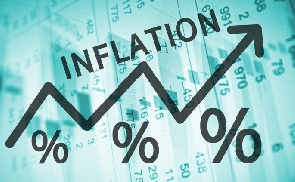Opinions of Wednesday, 26 October 2022
Columnist: Joe Effah-Nkyi
Ghana’s harsh economic downturn – Overcoming the odds
The Ghanaian sovereignty, indisputably, is confronted with harsh economic meltdown to the extent that there has been an urgent need for the country to run to IMF for Extended Credit Facility (ECF) bailout, its conditionality notwithstanding. Undoubtedly, the intense cause of the seemingly existing economic woes of the country in this present dispensation could, indeed, be attributed to a plethora of factors that can easily be acknowledged even by ordinary folks. Some perceived causes It would be recalled that, in April 2019, the government introduced the Benchmark Value Discount Policy in an attempt to make the Ghanaian ports highly competitive especially within the West African sub-region. Additionally, it sought to reduce smuggling and increase the government's revenue injections emanating from the port. The policy provided a discount of 50% on the delivery or benchmark values of imports to cushion traders, thus creating flexibility for final consumers; the greater populace thus unequivocally hailed this course of action. However, as strange as the case may be, the policy did not see the light of day. Just as this strategic ingenuity started to gather momentum, there was the total withdrawal of this commendable policy, to the bewilderment of the collective trading population. Furthermore, the issue of Shipping Freight charges that are chargeable by ship owners overseas is one particular area that has contributed to subdue the country’s economic performance. It is an established fact that the International trading arena is so volatile and unpredictable that projections associated with Freight charges have become so unstable universally, most significantly in the era of COVID-19 thereby its damning effect has trickled down, subsequently affecting the Ghanaian economy in real terms. It would therefore be noted that a few years back Freight charges per 40footer container scheduled from China to West Africa was in the region of USD4,000.00. Today, as we speak now, same consignment from the port of loading to the subsequent port of destination costs as much as USD 12,000 to 14, 000.00. This is a conspicuous manifestation that when this reversal of Benchmark values is put together with these astronomical freight charges and juxtaposed with the current Rate of Exchange (ROE), the pricing of imports becomes so escalated; this ultimately is likely to unleash serious economic shocks and the emanating consequences may become so devastating to the very existence and survival of the greater populace. Exchange rate factor Nonetheless, it is also evident that over the years, individual shipping lines operating in the country have developed the penchant to quote and apply different rates of exchange in the calculation of shipping line and demurrage charges without recourse to the Bank of Ghana’s weekly exchange rate review. The challenge here is that such a course of action destabilizes the economic policy intentions of the government and thereby creates embarrassment in the scheme of activities. Moreover, the callousness and insensitivity of some individuals to, deliberately, mop up and stockpile inadequate hard currencies in the system with the evil intentions to cause socio-politico-economic mayhem is a cause for concern. Again, the urge of our market mummies and traders to uplift prices of goods unceremoniously without the least consultations with authorities are all key factors that have plundered this country into this unfortunate state of affairs. Be it as it may, the present economic situation of the country requires a quick and robust solution to be put in place in order to put the smiles back on the faces of Ghanaians. Consequently, the government in her determination to alleviate the hardship of the entirety of the populace could take a second look for the restoration of some of the prudent policies that were put in the public domain but have subsequently been relegated to the background. This could reasonably ensure some element of stabilization of the economy.













